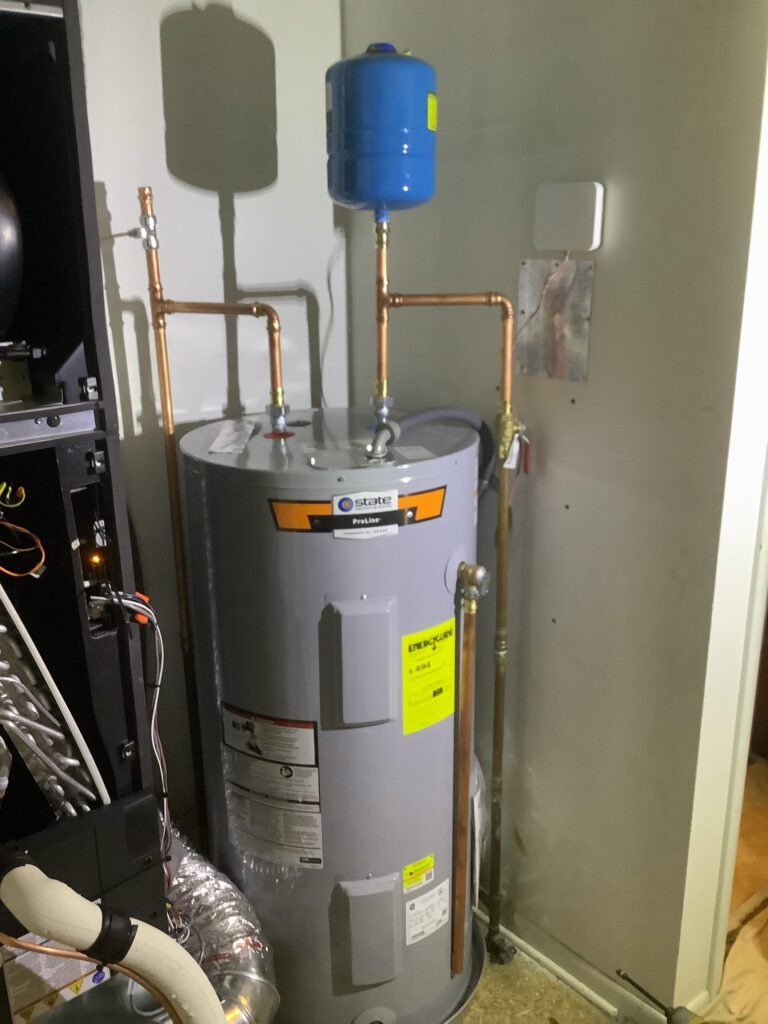Introduction
Water heaters are essential home appliances that aid in our day-to-day routines. Water heaters provide hot water for daily activities such as bathing, cleaning, and cooking. However, like other home appliances, water heaters do come with potential risks, including the possibility of explosion. You read that correctly – water heaters can explode.
You must understand the risks and how to prevent them to ensure the safety of your home and family. This blog will discuss the causes, warning signs, and preventative measures for water heater explosions, helping you keep your water heating system in optimal condition. Remember that a water heater explosion is serious and dangerous, so keep in mind that reaching out to a plumbing professional may become necessary. The plumbing team here at Logan Services is dedicated to providing assistance and service to all your water heater, drain, and general plumbing issues.
Understanding Water Heater Explosions
How and Why Water Heaters Can Explode
Although water heater explosions are rare, they can be catastrophic. These explosions occur when excessive pressure builds up inside the tank, ultimately causing it to burst. This pressure can come from a variety of sources, such as malfunctioning components, improper installation, or lack of maintenance. If you believe one of these sources applies to your water heater, contact a plumbing professional to assist you before an explosion does occur.
Types of Water Heaters and Their Risks
- Tank Water Heaters: The most common type of water heater, a tank water heater, stores and heats a large volume of water. Tank water heaters are more prone to explosions due to the potential for pressure build-up inside the tank.
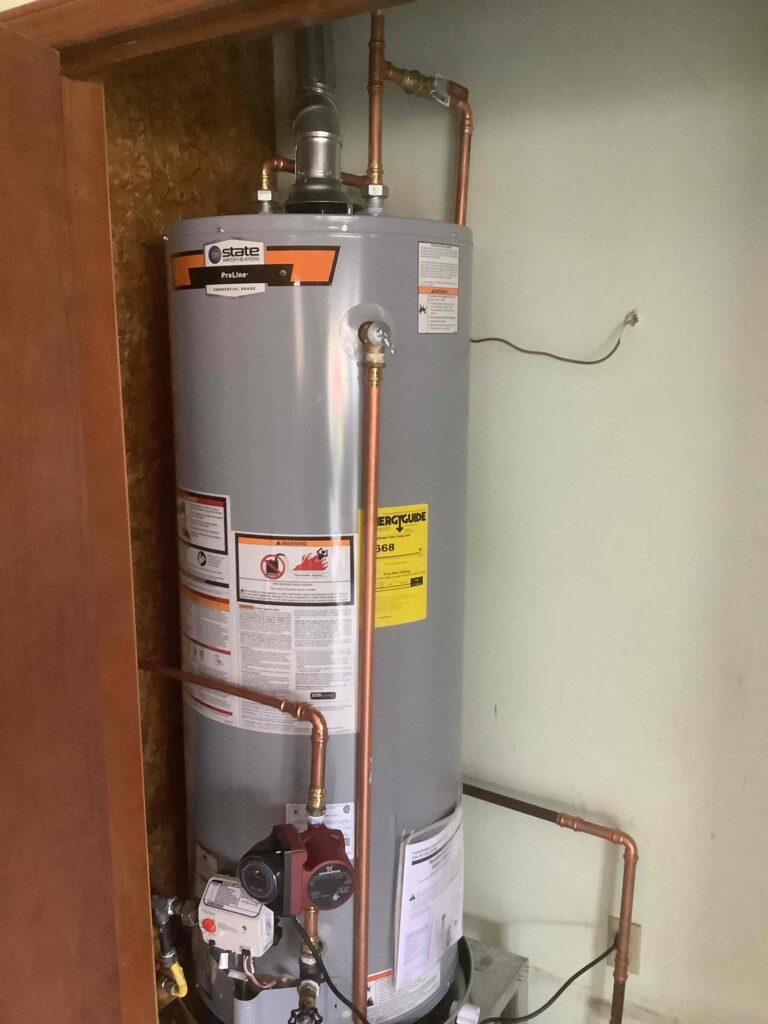
- Tankless Water Heaters: Although they are generally safer, tankless water heaters can still pose explosion risks if gas lines are improperly managed or if the system is incorrectly vented.
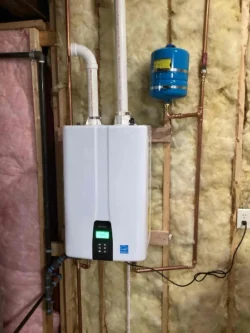
Common Causes of Water Heater Explosions
Excessive Pressure
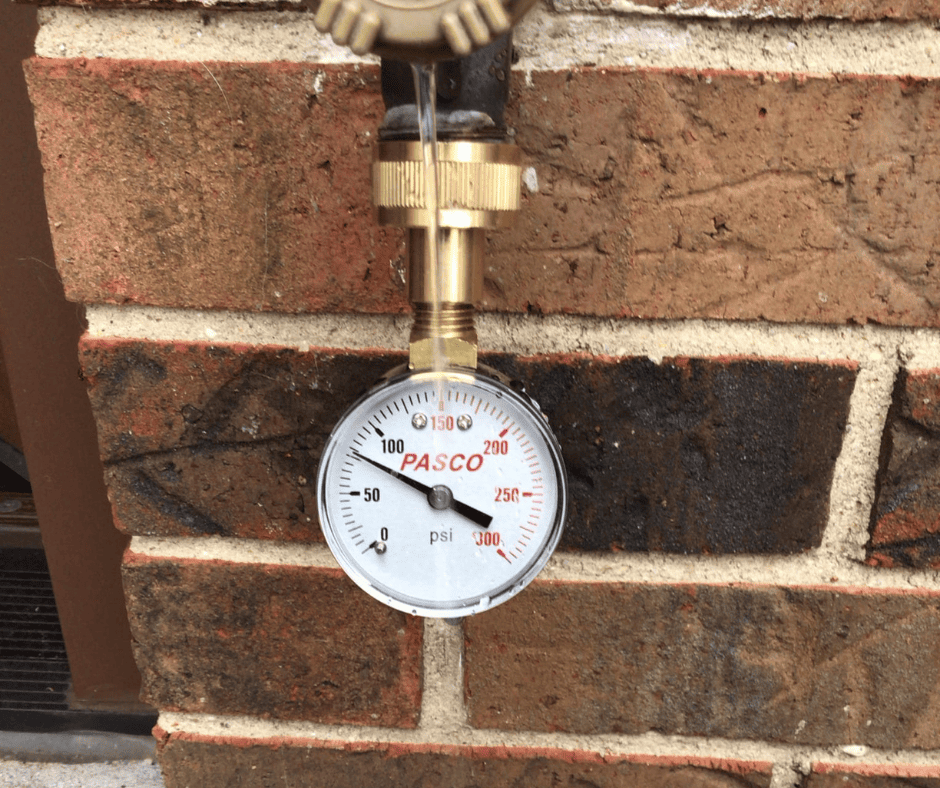
- Role of the Temperature & Pressure (T&P) Relief Valve: An important component to know and keep track of is the T&P Relief Valve. This safety device releases excess pressure from the tank. However, if it is blocked or it fails, pressure can build up to dangerous levels, resulting in the possibility of an explosion.
- Impact of Sediment Buildup on Pressure: Sediment buildup can impact many functions of a water heater. Over time, sediment can accumulate at the bottom of the tank, reducing its capacity and causing the heater to overheat, which increases pressure.
High Temperature
- Risks of Thermostat Failure: It is important that you monitor how well various components work – one of those components being the thermostat. A malfunctioning thermostat can cause the water heater to heat water beyond safe limits, leading to excessive pressure.
- Importance of Setting the Thermostat Correctly: As part of your regular monitoring of your water heater and its thermostat, be sure to check the temperature. Keep the thermostat at a safe temperature (typically around 120°F). This prevents the system from overheating and pressure buildup.
Gas Leaks
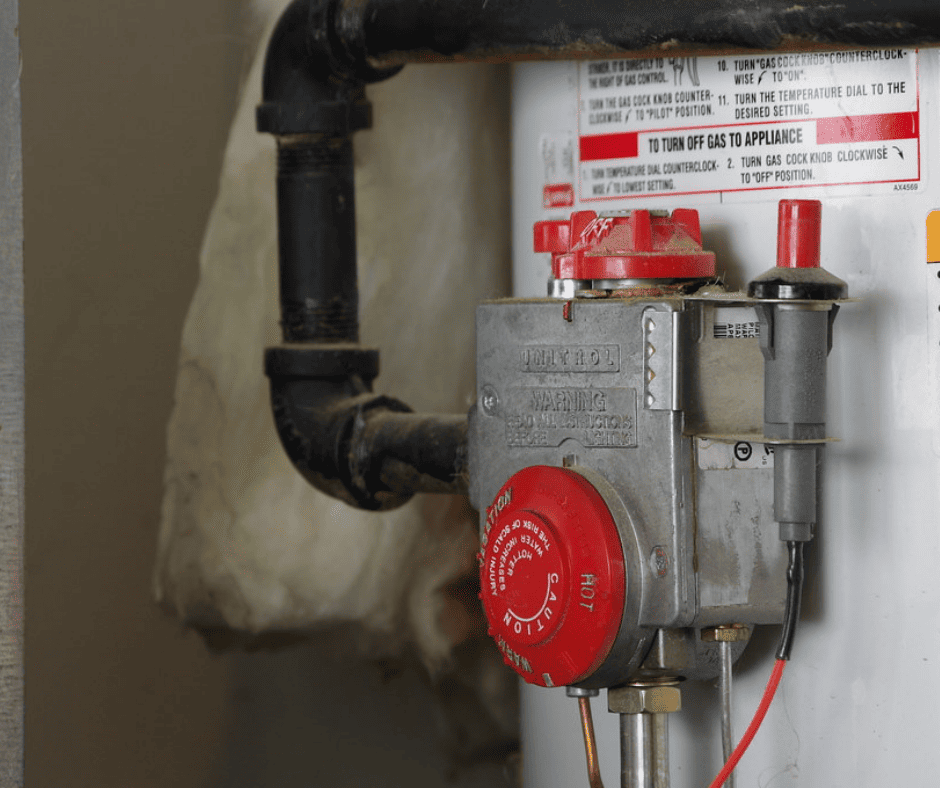
- Identification and Dangers of Gas Leaks: Gas leaks are dangerous no matter the situation. When it comes to gas leaks and water heater explosions, it is important to know that an explosion can occur if and when the gas comes into contact with a spark or open flame. It is crucial to identify and repair gas leaks promptly.
- Difference Between Gas and Electric Water Heater Risks: Gas water heaters are more prone to explosions due to the flammable nature of the gas. Electric heaters, while they are still risky, primarily only pose dangers related to electrical malfunctions.
Improper Installation
- Common Installation Mistakes: Incorrect installation, such as improper venting or using the wrong materials, can increase the risk of explosions.
- Importance of Professional Installation: Although some projects can be done in a “DIY” manner, it is important to seek professional help when installing a new water heater. Hiring a professional ensures that the water heater is installed correctly and safely. The professionals here at Logan Services take their time to verify that the new system has been installed correctly.
Warning Signs of a Potential Water Heater Explosion
Leaking T&P Relief Valve
- Causes and Implications of a Leaking Valve: A leaking TP valve may indicate excessive pressure inside the tank. It’s a sign that the valve is functioning correctly, but it also signals potential pressure problems that need addressing.
Strange Noises
- Popping, Gurgling, and Knocking Sounds: These noises often indicate sediment buildup in the tank. The sediment causes the water heater to overheat and can stress the tank, increasing the risk of an explosion.
Rotten Egg Smell
- Significance of Sulfur Smell in Gas Water Heaters: If you are smelling a sulfur-like smell, then you most likely have a gas leak. Gas leaks are highly dangerous, and you must take immediate action to address gas leaks and prevent explosions.
Discolored Water
- Rusty or Brown Water as a Sign of Tank Corrosion: If you notice rusty or brown water, then you are experiencing corrosion of your tank’s structure. This makes your water heater more susceptible to bursting under pressure.
Excessive Heat
- Dangers of Extremely Hot Water and Malfunctioning Thermostat: Extremely hot water can scald and also indicate that the thermostat is not regulating temperature correctly, which can lead to overheating and increased pressure. As previously stated throughout the blog, increased temperature can cause your water heater to explode.
Preventive Measures
Regular Maintenance:
- Importance of Annual Inspections: Having a professional inspect your water heater annually can catch potential problems early and ensure all components are functioning correctly.
- Flushing the Tank to Remove Sediment: Regularly flushing the tank removes sediment buildup, improving the overall efficiency of your system. This also reduces the risk of the water heater overheating.
Temperature Settings:
- Keeping the Thermostat at a Safe Temperature: As previously mentioned, it is important to monitor your thermostat to ensure it is set at a safe temperature. Setting it to a safe temperature, such as around 120°F, can help to prevent your heater from overheating and pressure building up.
Installing Safety Devices:
- Benefits of Pressure Relief Valves and Expansion Tanks: Utilizing safety devices for water heaters is important. These devices, like the pressure relief valves and expansion tanks, help manage pressure and prevent dangerous levels from building up inside the tank.
Professional Services:
- When to Call a Plumber or Technician: If you have noticed any warning signs or if your water heater is old, call a professional for inspection and potential replacement.
- Importance of Replacing Old Water Heaters: Older water heaters are more prone to failure and should be replaced to avoid any possible risks.
At Logan Services, we specialize in water heater installation, maintenance, and repair. If you are experiencing issues with your water heater or need a professional inspection, contact us today to ensure your home’s safety and comfort.
Conclusion
Although water heater explosions are rare, they are not impossible, and they can be negatively impactful. Understanding the causes and signs of potential problems, along with regular maintenance and professional assistance, can significantly reduce the risk. By taking these precautions, you can ensure that your water heater operates safely and efficiently. Do not hesitate to reach out to Logan Services for all your water heater needs and enjoy the peace of mind knowing your home is in good hands.

